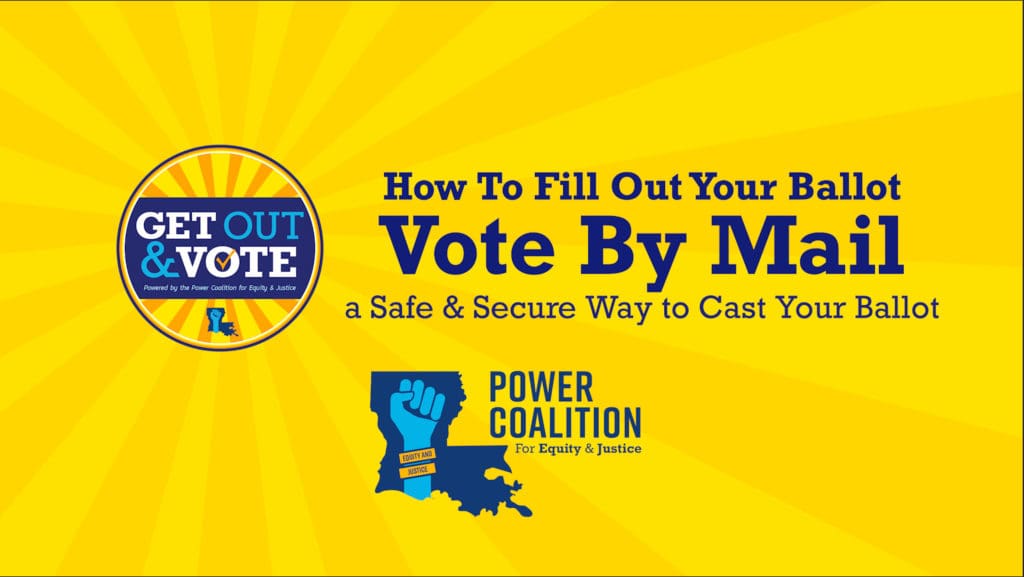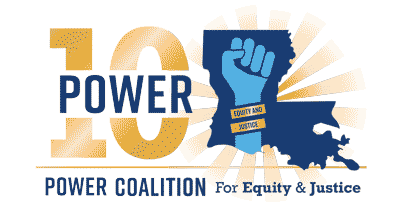In Louisiana, many harmful absentee voting laws have been passed. Here is what we know:
Act 380: No person except the immediate family member of the voter shall deliver by any means more than one marked ballot per election to the registrar of voters.
-
- Only close family members can deliver more than one completed ballot to the elections office during an election. These close family members include:
-
-
- Your children and their spouses
- Your siblings and their spouses
- Your parents and your spouse
- The parents of your spouse
-
- Basically, if you're not one of these close family members, you can only deliver one ballot at a time.
Act 302: No person except the immediate family member of the voter, or an employee of the registrar of voters or the election division of the Department of State shall assist more than one voter in completing their absentee ballot.
- Breakdown of law:
- This rule says that only certain people can help more than one voter with their absentee ballot:
-
- Immediate Family Members: As defined, this includes the voter's children, their children's spouses, the voter's siblings and their spouses, the voter's parents, the voter's spouse, and the parents of the voter's spouse. These close family members are allowed to assist multiple voters.
- Employees of the Registrar of Voters or the Election Division: This includes people who work for the office that manages elections or the state's Department of State. These employees can also assist multiple voters with their absentee ballots.
-
- No one else is allowed to help more than one voter with their absentee ballot.
Act 317: No person except the immediate family member of the voter shall submit by any means more than one completed absentee ballot application to the registrar of voters. Further, no person, organization, or entity shall distribute an absentee ballot application to any person who has not requested a ballot.
-
- Who Can Submit Multiple Applications: Only immediate family members of the voter can submit more than one completed absentee ballot application to the elections office. Immediate family members include:
- The voter's children and their spouses
- The voter's siblings and their spouses
- The voter's parents
- The voter's spouse
- The parents of the voter's spouse
- Limitation for Others: Anyone who is not an immediate family member can only submit one completed absentee ballot application on behalf of a voter.
-
- Distribution of Absentee Ballot Applications:
-
-
- Prohibition on Unsolicited Distribution: No individual, organization, or entity is allowed to distribute absentee ballot applications to people who have not specifically requested them. This means that proactive distribution of applications by others is not permitted.
*Immediate family member is defined as: "the individual's children, the spouses of his children, his brothers and their spouses, his sisters and their spouses, his parents, his spouse, and the parents of his spouse."
These laws could negatively impact voters in several ways:
- Limited Help for Absentee Voting: Act 302 restricts assistance with absentee ballots to immediate family members or election officials. This limits the help available to voters who might need support, such as those with disabilities or language barriers.
- Restricted Ballot Delivery: Act 380 only allows close family members to deliver more than one marked ballot. This could make it difficult for voters who rely on others for ballot delivery, especially if they don't have immediate family available to assist.
- Hindered Application Assistance: Act 317 prohibits anyone except immediate family members from submitting multiple absentee ballot applications and bans distributing these applications unsolicited. This can create barriers for voters who need help navigating the application process or who are unaware of how to request an absentee ballot.
Overall, these laws could make it harder for some voters to get the assistance they need, potentially leading to delays and disenfranchisement.




